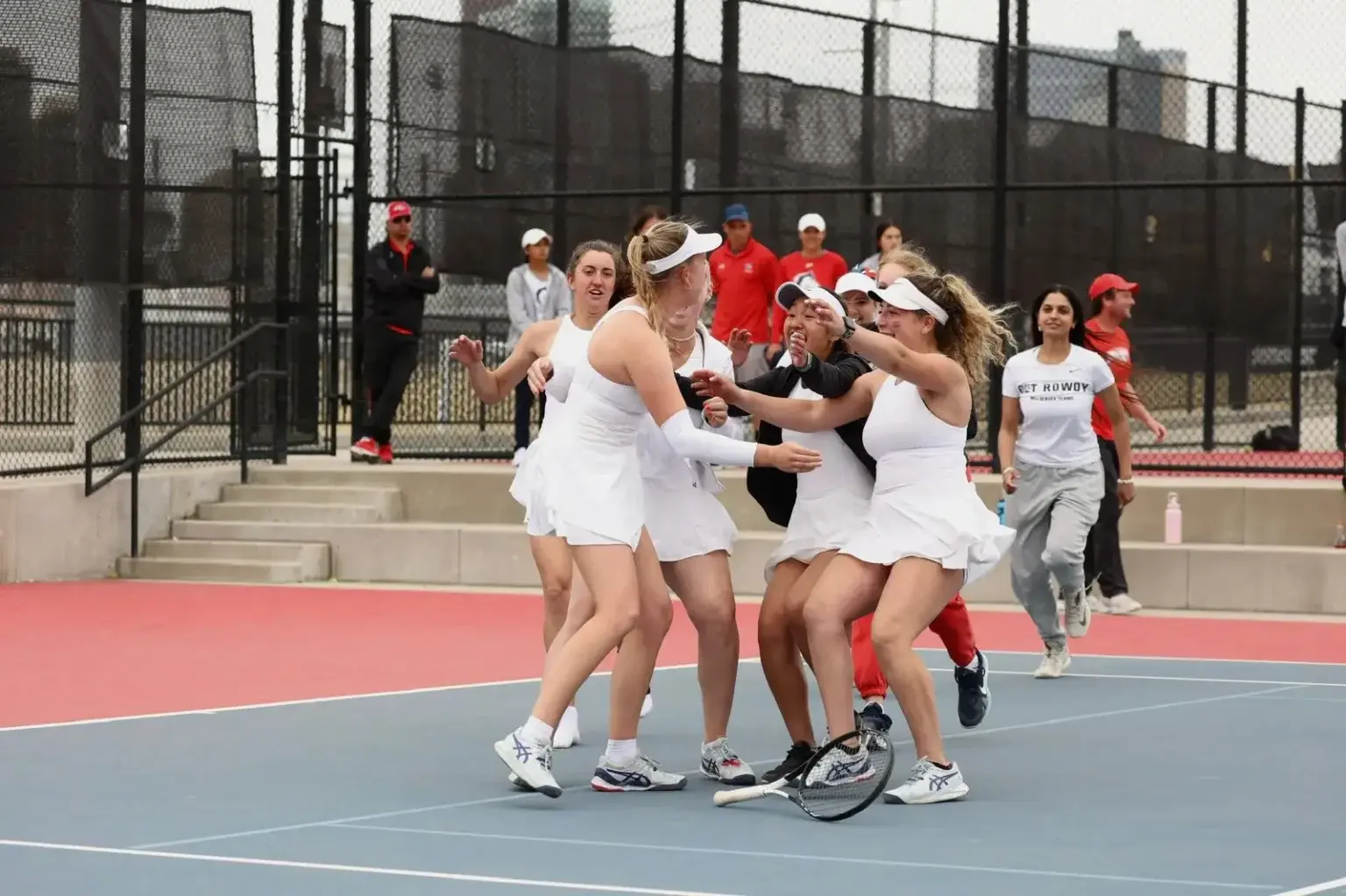- SERVICES
- HIGHER EDUCATION MARKETING
- ENGAGEMENT & ENROLLMENT MANAGEMENT
- STUDENT RECRUITMENT AGENCIES
- PROFESSIONAL EDUCATION & TRAINING
- WHO WE ARE
WHO WE ARE
Learn more about Keystone Education Group, including our leadership structure, why choose Keystone as your educational partner, and company press releases.
QUICK LINKS
- RESOURCES
RESOURCES
Find a range of helpful resources to help with your educational marketing. From on-demand webinars, reports & data, to customer testimonials and our downloadable media kit.
QUICK LINKS
- NEWS
- REQUEST A CALL

Supporting student-athletes: 5 ways universities can help improve well-being
4 min read
|- Keystone Higher Education News
- Supporting student-athletes: 5 ways universities can help improve well-being
Student athletes often face more pressure than the rest of the student body - juggling both academic and sporting pressures, plus, in a lot of cases, adapting to moving away from their family.
So, how can universities best support student-athletes with their mental wellbeing? In this blog, Placement Specialist Immie Cowper from Keystone Sports Germany takes a look at what universities can do to help student-athletes in particular, especially when it comes to mental health.
The pressure of being a student-athlete on mental health
Being a student-athlete requires focus and attention in both academic and athletic contexts; both require a lot of time, energy, and hard work.
It takes a great sense of responsibility and organization to ensure that all the different aspects are taken care of. A busy schedule can be overwhelming, exhausting and stressful for student-athletes to deal with – from attending lectures, doing homework, group projects, to athletic commitments like training, gym, rehabilitation and recovery.
It may not always be easy and can be overwhelming for student-athletes to deal with, but these are also the very reasons why student-athletes love their time in college.
Helping student-athletes settle into studying abroad
Moving away from home can bring up a lot of emotions and thoughts. Let’s use Lilly Stienemeier as an example, a Keystone Sports athlete from Germany who recently graduated from MSU Denver. She said one of the most challenging moments was her first move: “Moving to a new country on your own, not knowing what to expect or where you were going. Of course I was excited, but it was also scary at the same time. It’s a big step for anyone, but especially when you’re 18 years old.”
In situations like this, compassion is so important. It can be difficult and stressful to deal with the move, but coaches and university staff need to show they fully understand each individual situation.
Make sure to check in on student-athletes and don't put too much pressure on them.

Exercise, diet, and student-athlete mental health
We all know that being physically active has a huge impact on mental well-being. As a student-athlete, it's of course nearly impossible to live an inactive lifestyle; yet, athletes often strive for perfection and put a lot of pressure on themselves, which can diminish the joy and mental benefits that exercise naturally brings.
A useful tip for reducing mental strain and pressure is to help student-athletes set realistic goals.
Diet also plays a big role in mental health. When we feel stressed, overwhelmed, or down, it’s very common to reach for foods that are high in fat, sugar, and carbohydrates. It’s important for student-athletes to maintain a balanced diet to ensure they have enough energy to perform, and healthy to eat all types of foods in moderation.
5 ways universities can support the mental health of student athletes
-
Provide Access to Sports Psychologists
Universities should employ sports psychologists as part of their athletic departments to address the unique mental health challenges student-athletes face. These professionals can help with performance anxiety, stress management, and building resilience. -
Develop Peer Support Programs
Create peer mentorship programs where senior student-athletes mentor younger ones. This can help new athletes adjust to the demands of college life and feel supported by someone who has navigated similar challenges. -
Offer Flexible Academic Support
Recognizing the demanding schedules of student-athletes, universities can provide academic advisors who specialize in working with athletes. Offering flexible deadlines and academic accommodations during peak competition seasons can reduce stress. -
Host Mental Health Workshops and Seminars
Organize regular workshops on mental health topics, such as stress management, self-care, and coping strategies, specifically tailored for student-athletes. These events can foster awareness and encourage open conversations about mental well-being. -
Create Dedicated Safe Spaces
Establish dedicated wellness spaces within athletic facilities where student-athletes can unwind, meditate, or speak confidentially with counselors. This reinforces the importance of mental health and provides a convenient, stigma-free environment for support.
Adopting some of these initiatives can foster a supportive environment where student-athletes can thrive both on and off the field.
More about:
Related Tags
Just For You
Top Picks
Higher Ed Chats Podcast
Listen to the latest episodes of our Higher Ed Chats Podcast - new format for 2024. Hear from Higher Ed thought-leaders from around the world!
Who Will Win The Keystone Awards?

Watch the Keystone Awards Ceremony to see the winners of the 2025 Keystone Awards!
Subscribe
to get the latest news and updates





